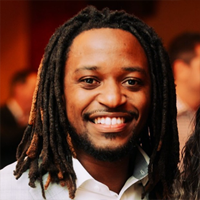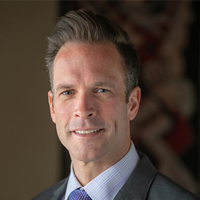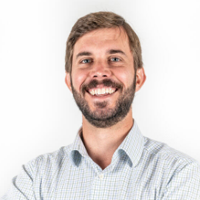Evaluation practice in the health sector has long drawn on behavior sciences to assess mechanisms and conditions for behavior change. These tools and frameworks have made their way into other sectors, including cross-cutting environmental topics in the context of development, to help capture and analyze uptake of training and capacity building efforts, and understand larger scale…
Moderator(s)

Jeneen R. Garcia is an Evaluation Officer at the GEF IEO. She has both coauthored and led evaluations on GEF support for various focal areas, including the cross-cutting themes of multistakeholder partnerships, private sector engagement, environmental and socioeconomic synergies and trade-offs, scaling-up of impacts and behavior change. Since joining the GEF IEO, she has dedicated herself to piloting innovative methodologies that bridge qualitative and quantitative approaches, and that integrate the disciplines of natural sciences, social sciences, and communications with the field of evaluation. She has helped develop conceptual frameworks and tools for assessing impact in complex adaptive systems, among which is the now-mainstreamed GEF Theory of Change Framework.
Her previous work in her native Philippines was in the fields of multistakeholder watershed governance with a bilateral government project, and community-based natural resource management at an environmental law NGO. Jeneen's work at both organizations primarily involved research, education, knowledge management, advocacy, and communications across various media. She also has extensive experience as a former freelance writer, editor, and photographer for different publications.
Jeneen obtained a Joint European MSc in Water and Coastal Management in four European countries through an Erasmus Mundus scholarship. Her academic research focused on the scaling-up of management of social-ecological systems, using community-based marine protected areas in the Philippines as case study. She has a Bachelor's degree in Environmental Science, and conducted a Master's research in Marine Biology. Jeneen has certificates in evaluation from the International Program on Development Evaluation Training (IPDET), and the Abdul Latif Jameel Poverty Action Lab (J-PAL). She was Program Co-Chair (2019-2021) of the Systems in Evaluation Topical Interest Group (SETIG) of the American Evaluation Association.
Presenter(s)

Allen is an interdisciplinary water expert with over 10 years of progressive experience working at the intersection of agriculture, energy, and health systems. He’s advised a sitting US Ambassador on foreign water-energy policy, worked within a Fortune 100 company on corporate sustainability, and has served in numerous consulting roles globally and across sectors. Allen leads WWF’s freshwater work on science-based targets for nature, and facilitates the harmonization of metrics across WWF’s Freshwater & Food team. Allen has a PhD in Civil Engineering from University of Virginia, a Master of Public Affairs degree in Water Governance and Policy from the O’Neill School of Public and Environmental Affairs at Indiana University Bloomington, and a Bachelor of Science in Civil Engineering from Clemson University.

Edward R. Carr is a geographer and anthropologist whose career and research focus on exploring alternative ways of achieving meaningful and enduring improvements to human well-being. His work provides insights into the ways development and adaptation interventions impact human well-being, both positive and negative, how livelihoods work to order agrarian and other worlds, and how resilience presents both barriers to, and opportunities for, the transformative changes needed to manage our world. He also directs the Humanitarian Response and Development Lab (HURDL), which is based in the George Perkins Marsh Institute. HURDL’s wide-ranging work includes policy development, and project and program design, implementation, monitoring, and evaluation, all undertaken with the goal of assisting individuals and communities to build foundations for innovative development. He is the author of more than 70 publications on issues of development, livelihoods, adaptation to climate change, and the evolving global environment. Carr’s research and practice has been supported by the National Science Foundation, National Geographic Society, United States Agency for International Development, UK Department for International Development, World Resources Institute, World Bank, and Red Cross Red Crescent Climate Centre.

Jorge Luis Castaneda is a Behavioral Economist working with the Mind, Behavior & Development Unit (eMBeD) at the World Bank. He integrates behavioral science into the design and implementation of anti-poverty policies that address various issues such as waste management, employment and youth activation, and tax compliance. He has conducted research for over a decade in more than twenty developing countries across Africa, Asia, Eastern Europe, Latin America, and the Caribbean. Throughout his career, he has gained extensive experience in experimental economics, impact evaluation, econometric analysis, and qualitative research. Prior to joining the World Bank, he worked as a Research Fellow with the Social Sector at the Inter-American Development Bank. He holds a B.A. and an M.Sc. in Economics from the Universidad de Los Andes, Colombia.

Kevin Green is a Vice President at Rare, where he leads the Center for Behavior & the Environment, a team of scientists and program designers bringing the best insights from the science of human behavior to bear on the world’s most pressing environmental challenges. Before Rare, he was a research fellow at the Nature Conservancy and a research assistant at the Worldwatch Institute. He holds an MA in international development and economics from Johns Hopkins University and a BA in anthropology and sociology from Washington & Lee University.




